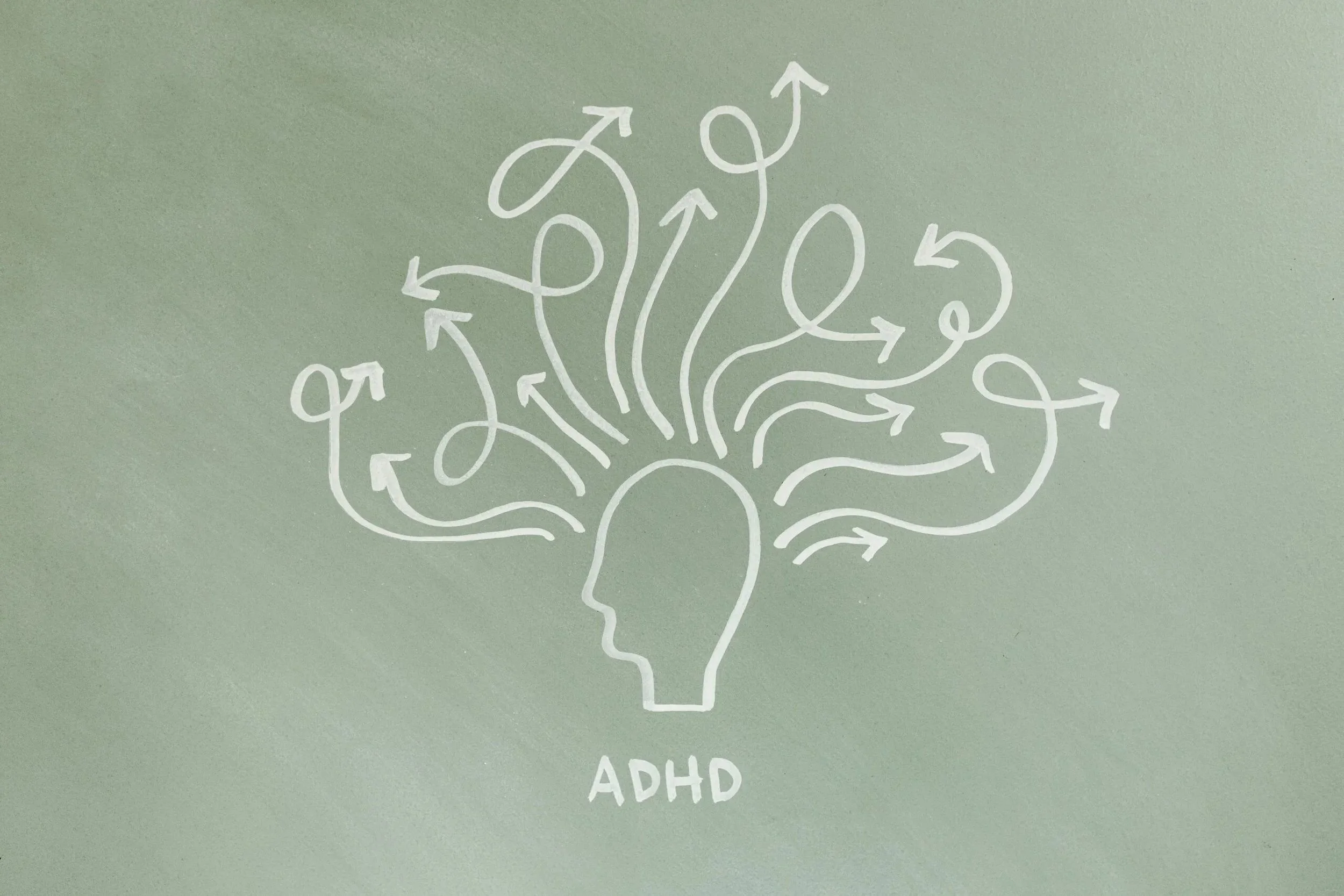Can ADHD Cause Stuttering? Understanding the Connection
If you or your child has Attention-Deficit/Hyperactivity Disorder (ADHD) and experiences frequent pauses, repetitions, or blocks while speaking, you might wonder can ADHD cause stuttering?
While ADHD and stuttering are two different conditions, they can sometimes appear together. Studies suggest that people with ADHD may be more likely to experience speech disfluencies, including stuttering, due to challenges with attention, impulse control, and processing speed. However, ADHD doesn’t directly cause stuttering; rather, the two can influence each other in complex ways.
In this article, we’ll explore how ADHD affects speech, why stuttering may occur in some individuals with ADHD, and what treatment options can help improve both communication and confidence.
What Is ADHD?
ADHD is a neurodevelopmental condition that affects a person’s ability to focus, organize, and control impulses. It’s typically divided into three main types:
Predominantly Inattentive: Difficulty focusing, listening, or following through on tasks.
Predominantly Hyperactive-Impulsive: Constant movement, interrupting, and acting without thinking.
Combined Type: A mix of inattentive and hyperactive-impulsive symptoms.
ADHD affects both children and adults, often influencing areas like school performance, relationships, emotional regulation, and even communication style. People with ADHD may talk rapidly, interrupt others unintentionally, or lose track of what they were saying mid-sentence.
These communication challenges can sometimes overlap with or contribute to speech disfluencies like stuttering.
What Is Stuttering?
Stuttering (also known as stammering) is a speech disorder that interrupts the normal flow of speech. It can involve:
Repeating sounds, syllables, or words (e.g., “b-b-b-ball”)
Prolonging sounds (e.g., “ssss-sun”)
Blocking where speech temporarily stops altogether
In addition to these speech disruptions, people who stutter may also display physical signs such as blinking, jaw tension, or lip tremors while trying to speak.
Stuttering usually begins in childhood, between the ages of 2 and 7, and for many, it improves or resolves with age. However, for others, especially those with co-occurring conditions like ADHD, it can persist into adulthood.
Is There a Connection Between ADHD and Stuttering?
There isn’t a single cause that explains why ADHD and stuttering sometimes occur together, but research shows that there is a notable overlap between the two.
According to studies published by the Stuttering Foundation, around 4–5% of children stutter at some point, and children with ADHD are more likely to experience speech disfluencies than those without ADHD.
Here are some potential links between the two:
1. Attention and Focus Challenges
Speech requires continuous mental coordination; you must think about what to say, organize your thoughts, and articulate clearly. For people with ADHD, difficulty maintaining focus may disrupt this flow, leading to more frequent speech interruptions or hesitation.
2. Impulsivity and Rapid Speech
Individuals with ADHD often speak quickly or interrupt others. This impulsive speech pattern can increase the likelihood of stumbling over words, especially when combined with stress or excitement.
3. Working Memory Strain
ADHD affects working memory, the brain’s ability to hold and process information temporarily. When you’re trying to form sentences while thinking of what comes next, this can create extra cognitive load, resulting in pauses or repetitions.
4. Emotional and Neurological Overlap
Both ADHD and stuttering involve differences in brain structure and function, particularly in regions responsible for attention, motor control, and language processing. Emotional regulation difficulties, common in ADHD, can also intensify stuttering when anxiety or frustration kicks in.
Does ADHD Medication Affect Stuttering?
This is a question many parents and adults with ADHD ask. Research on this topic is still limited, but there are some observations worth noting.
Stimulant Medications (e.g., Adderall, Ritalin)
For most people, stimulant medications improve attention and impulse control, which may actually reduce disfluencies caused by rapid or disorganized speech. However, in rare cases, stimulants can lead to increased tension or anxiety, which may worsen stuttering.
Non-Stimulant Medications (e.g., Strattera, Guanfacine)
These medications tend to have milder side effects on speech and may be a better option for individuals sensitive to stimulants.
If you notice stuttering worsening after starting a new medication, it’s important to talk to your doctor. Adjusting dosage or switching medications can often resolve the issue.
How ADHD Symptoms Influence Speech
Speech fluency relies on timing, rhythm, and concentration, all areas that ADHD can affect. Here’s how typical ADHD symptoms might show up during speech:
Interrupting or talking over others: Impulsivity makes it difficult to wait your turn in conversations.
Losing track of thoughts: Inattention causes frequent pauses or incomplete sentences.
Rapid, disorganized speech: Hyperactivity can lead to talking too quickly, jumbling words, or skipping details.
Difficulty articulating ideas: Struggles with focus may make it hard to form coherent responses under pressure.
These tendencies don’t necessarily mean someone has a stutter, but they can mimic or intensify stuttering-like patterns, especially in stressful or high-demand situations.
Can Anxiety from ADHD Make Stuttering Worse?
Yes. Anxiety and stress can significantly worsen stuttering, especially in people with ADHD who already experience emotional regulation difficulties.
For example, someone with ADHD might feel anxious about speaking in meetings, recalling past experiences of stumbling over words or being misunderstood. This anxiety tightens muscles involved in speech, making disfluencies more likely.
In such cases, therapy that targets both ADHD symptoms and social or performance anxiety can be very effective.
Stuttering in Children with ADHD
Children with ADHD often have fast-paced thoughts and speech patterns, which can make fluency more difficult to maintain. However, it’s important to note that:
Not every child with ADHD stutters, and not every child who stutters has ADHD.
Some children may temporarily stutter as their language skills develop — this is normal and not necessarily related to ADHD.
If stuttering persists for more than six months, or if it’s accompanied by visible tension or frustration, professional evaluation is recommended.
Early intervention through speech therapy and behavioral support can make a significant difference in long-term communication skills.
How Are ADHD and Stuttering Treated Together?
When ADHD and stuttering coexist, the best results come from multidisciplinary treatment combining medical, psychological, and speech interventions.
1. ADHD Management
Treatment usually involves:
Medication: To improve focus and reduce impulsivity.
Behavioral therapy: Such as Cognitive Behavioral Therapy (CBT), to manage emotions and build attention skills.
Lifestyle changes: Better sleep, exercise, and nutrition to support brain function.
By reducing ADHD symptoms, many people find that their speech naturally becomes calmer and more organized.
2. Speech Therapy
Speech therapy is the cornerstone for addressing stuttering. A speech-language pathologist (SLP) can teach strategies such as:
Slowing speech rate
Breathing control
Using relaxation techniques during communication
Practicing fluency in low-pressure settings
Therapy focuses not only on speech mechanics but also on confidence and coping skills.
3. Mindfulness and Emotional Support
Since stress often worsens both ADHD symptoms and stuttering, mindfulness practices and relaxation exercises can help. Working with a therapist trained in ADHD and speech-related anxiety can address both conditions simultaneously.
Can Adults with ADHD Develop Stuttering Later in Life?
While stuttering usually begins in childhood, some adults with ADHD notice speech disfluencies emerging or worsening later, often under stress, fatigue, or emotional strain.
This doesn’t necessarily mean a new stutter has developed. Instead, it may be speech disorganization, where thoughts move faster than the ability to articulate them clearly.
If this happens frequently, it’s worth consulting both a psychologist and a speech-language pathologist to determine whether it’s true stuttering or ADHD-related speech disruption.
Practical Tips for Managing Stuttering with ADHD
Whether you’re an adult managing ADHD or a parent supporting a child, these strategies can help reduce stuttering and improve communication:
Slow down intentionally. Speak at a measured pace instead of rushing through sentences.
Pause before responding. Give yourself a moment to organize your thoughts.
Reduce background distractions. It’s easier to speak fluently when you’re focused.
Practice mindfulness. Deep breathing or grounding exercises calm the nervous system.
Work with professionals. Combine therapy for ADHD and speech to address both root causes.
Be patient with yourself. Stuttering and ADHD are manageable with time, consistency, and the right support.
Final Thoughts
So, can ADHD cause stuttering? Not directly, but the two are often linked through attention, impulse control, and processing challenges. ADHD can make speech less fluent, while anxiety or rapid thought patterns may increase stuttering tendencies.
Fortunately, with professional assessment, ADHD management, and speech therapy, most people can see significant improvement. Whether it’s slowing down speech, building focus, or learning new coping tools, recovery is possible, and communication can become smoother and more confident over time.
If you or your child is experiencing ADHD-related speech difficulties, you don’t have to navigate it alone. At Wellman Psychology, we specialize in Cognitive Learning Solutions Chicago and evidence-based therapy for ADHD, speech challenges, and emotional regulation.
Our team in Chicago, IL, can help you uncover the cause of your symptoms and build personalized strategies for clearer, more confident communication.
Reach out today and take the first step toward better focus, speech, and overall well-being.
Feel free to check out our social media links below:
Find out more articles that can help you below:







